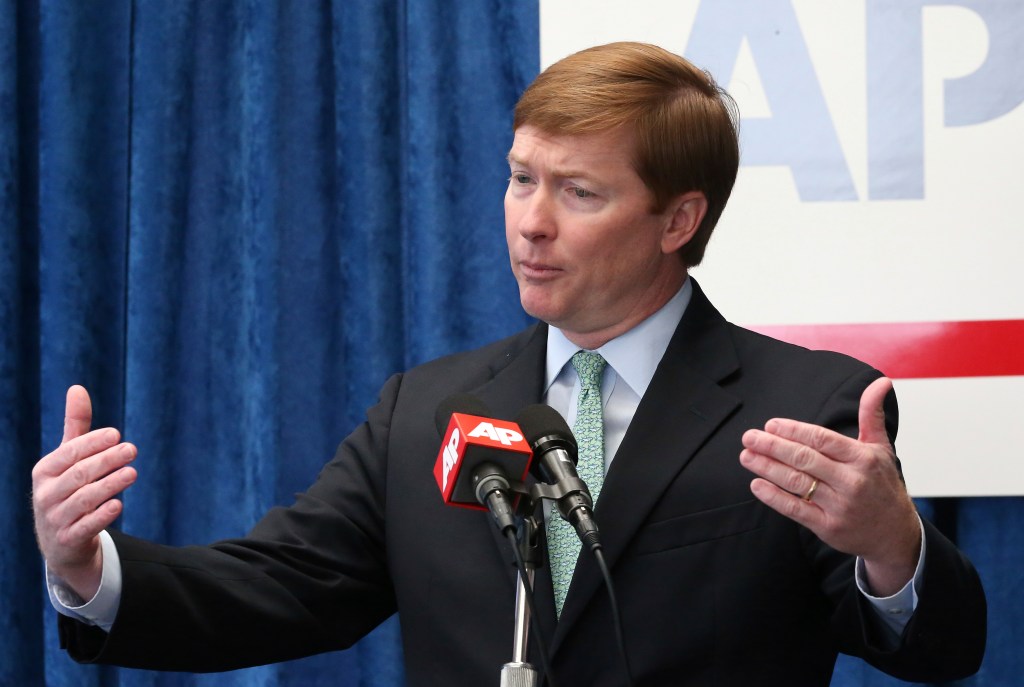A day after a 19-year-old gunman used a legally purchased assault rifle to allegedly kill 17 people at a high school in South Florida, state lawmakers decided to postpone further consideration of a proposal to loosen rules on who gets a concealed carry permit.
“Out of respect for their families and those suffering as a result of this tragedy, I’m working with bill sponsors to postpone consideration of the legislative proposal related to the licensing process,” said Florida agriculture commissioner Adam Putnam, who proposed the measure.
Videos by VICE
Putnam, a Republican gubernatorial candidate, proposed a measure to let people get concealed carry licenses (his department oversees the process) if their background check was still pending after 90 days. The bill has moved steadily through committee in both houses with little opposition, and the Senate was scheduled to discuss it Thursday, but bill sponsor Sen. Kelli Stargel said it was unlikely to be discussed, in light of the shooting.
According to law enforcement, Cruz legally purchased his gun at a gun store in February 2017, passed a federal background check, and wasn’t registered as possessing a concealed carry license, so the proposed law wouldn’t have applied to him.
Critics accuse the new measure of letting people without clean records get weapons, but GOP Sen. Stargel says the bill’s scope is extremely limited. Citizens already go through a background check to buy a gun, and Stargel says this measure would simply close the 2,400 or so cases each year that’ve been stuck in limbo due to incomplete records or documentation.
“That bill is really not what people have said it is,” she told VICE News. “It is not a sweeping gun policy change.”
Most background checks are accepted within a matter of minutes, but about 9 percent are delayed for additional review, according to 2014 federal data analyzed by the Wall Street Journal. Of those delayed, just over 1 percent were denied.
Stargel said that while some have misinterpreted the scope and intention of the bill, now is not the time to debate it, in the wake of the deadliest school shooting since Sandy Hook.
“We’ll save that discussion for another day,” she said.
Others viewed the policy as a danger to Florida.
“It’s extremely dangerous to allow people who don’t have completely clean background checks to get a permit,” Patti Brigham of the Florida Coalition to Prevent Gun Violence, told the Tampa Bay Times earlier this month.
In the wake of the shooting at Marjory Stoneman Douglas High School in Parkland, Stargel says lawmakers should focus on helping individuals with mental health challenges.
“What we need to do is get to the individuals that are pulling the trigger and try to prevent them from getting to that point,” she said. “It’s not the gun, it’s the person that’s pulling it.”
Putnam is a vocal gun advocate, labeling himself an “NRA sellout” after he announced his candidacy.
Florida ranked 25th in 2016 for gun deaths per capita, but it got an F grade from the Law Center to Prevent Gun Violence in 2016 for its relatively relaxed gun laws.
Floridians don’t need licenses or permits to buy guns, and they don’t need to register them with the state either.
A license is needed to conceal carry a handgun, but it isn’t necessary for shotguns and assault rifles, such as the AR-15 officials believe Cruz used in the shooting.
Florida doesn’t regulate assault weapons or large-capacity ammunition magazines, though a Senate bill introduced in January seeks to change that.
According to the most recent state data, there were more than 1.8 million concealed carry licenses as of January 2018, roughly one license each for a tenth of the state’s population.




